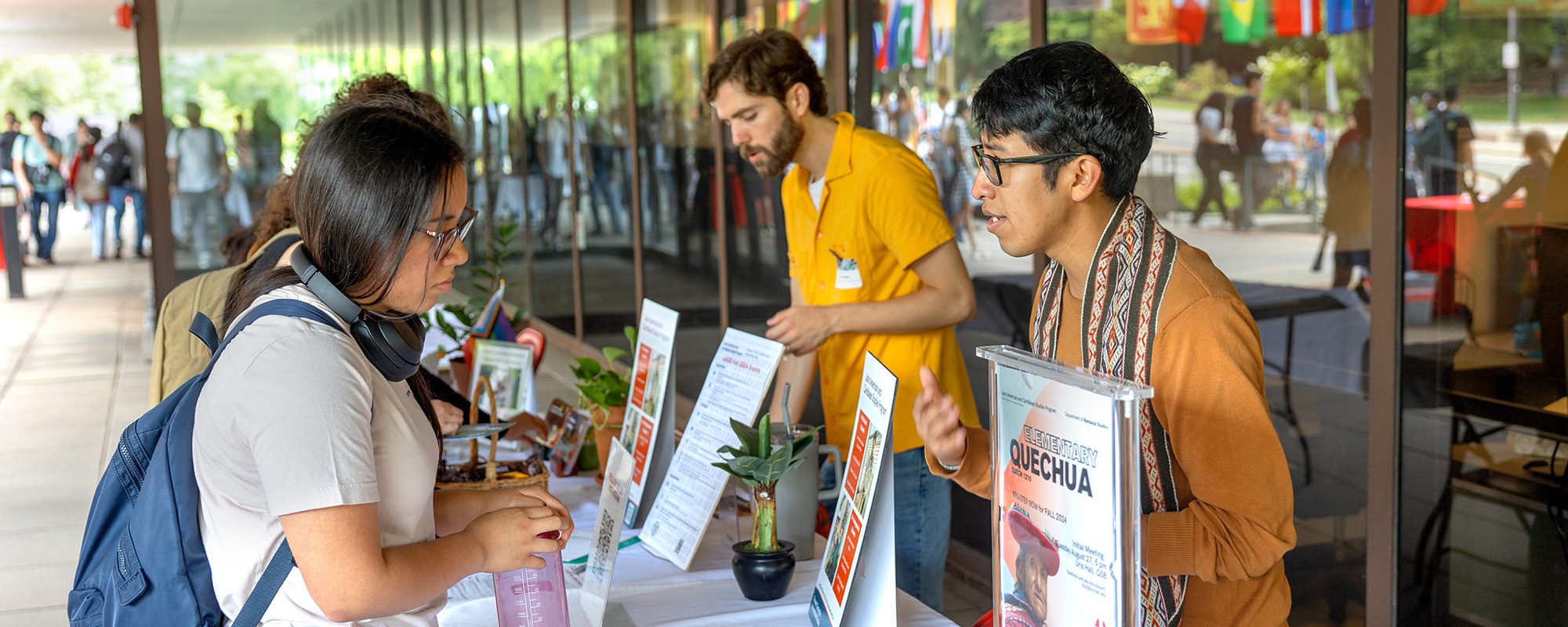¿Qué es el Juco? Una Excelente Oportunidad para Estudiantes Atletas
Los junior colleges son sumamente subestimadas en el panorama deportivo universitario de Estados Unidos. A pesar de la gran cantidad de talento presente, no recibe el respeto que merece por parte de estudiantes atletas y sus familias.
¿Qué es el deporte universitario JUCO?
JUCO significa Junior Colleges, y se refiere al deporte universitario bajo el ente regulador de la NJCAA, el cual regula a los programas deportivos de instituciones de 2 años. Los equipos se dividen en cuarenta y cinco regiones para hombres y cuarenta y cuatro para mujeres, según la ubicación geográfica y la división atlética de su escuela.
El deporte universitario de JUCO sigue un formato similar al de la NCAA, con tres divisiones bajo el organismo rector (NJCAA DI, DII y DIII). Las diferencias entre los equipos en cada nivel son menos significativas que en la NCAA, especialmente entre DI y DII. Los equipos consisten únicamente de estudiantes de primer y segundo año. Esto diferencia a la NJCAA de sus contrapartes de cuatro años, ya que es la única división limitada a estudiantes de años inferiores. Como resultado, los atletas Juco deben transferirse a una institución de cuatro años si desean completar una bachillerato y licenciatura.
Muchas personas subestiman la opcion de JUCO, pero es importante antes de rechazar una oportunidad en una institucion como esta, entender los beneficios y desventajas:
Beneficios de competir en JUCO:
1. Tiempo de juego inmediato: La oportunidad de jugar desde el primer año distingue a Juco de otros niveles. A diferencia de la NCAA y la NAIA, los estudiantes de primer año tienen una oportunidad viable de jugar minutos considerables. Jugar en partidos competitivos como estudiante de primer y segundo año es crucial para tu desarrollo como deportista y será mucho más beneficioso que estar en el banco en una institucion más grande.
2. Exposición: Desempeñarte bien a nivel de dos años abrirá puertas a niveles de cuatro años. Muchas instituciones importantes de la NCAA y la NAIA centran su reclutamiento en los mejores prospectos de Juco debido a que se aseguran de que estos vayan a rendir despues de la transferencia. Los entrenadores suelen observar partidos en el torneo nacional de la NJCAA para buscar posibles deportistas y ademas existen estrechas relaciones entre entrenadores de JUCO y de instituciones de 4 años.
3. Rentabilidad: Las universidades JUCO cobran matrículas más bajas que las instituciones de cuatro años, lo que permite a los atletas ahorrar dinero en sus clases de educación general. Los programas deportivos Juco completamente financiados también tienen más becas que sus contrapartes de la NCAA.
Desventajas del deporte universitario en JUCO:
1. Instalaciones: Aunque probablemente son una mejora respecto a las instalaciones en el pais de un estudiante atleta extranjero, las universidades JUCO a menudo carecen de la financiación que las universidades de cuatro años invierten en sus instalaciones. Esto puede hacer que tomar una foto del estadio o la superficie de juego antes del partido sea menos atractivo para tu historia de Instagram.
2. Tenencia corta: Una carrera como deportista en Juco dura solo dos años, lo que puede poner a los atletas bajo una presión adicional. Tienen dos años para demostrar que son lo suficientemente buenos como para jugar a nivel superior (NCAA o NAIA). Esto puede ser estresante si un atleta depende de una beca deportiva para completar su bachillerato. Sin embargo el peor de los casos es transferir esos creditos al pais en que el estudiante atleta proviene.
3. Menos recursos: Otra posible desventaja es la falta de personal de apoyo en comparación con las escuelas de la NAIA y, en particular, de la NCAA. De manera similar, tendrás acceso a entrenadores fuera de las prácticas, pero estas horas suelen ser limitadas debido al compromiso de los entrenadores con otros deportes. La mayoría de los JUCO no emplean personal de rendimiento deportivo a tiempo completo, lo cual es habitual en las instituciones de la NCAA.
¿Debería competir en un JUCO?
Por lo menos explorar estas opciones, comenzar tu carrera como estudiante atleta a nivel de JUCO permite adaptarte a la vida universitaria dentro y fuera del campo. Como muchos deportistas luchan por obtener tiempo de juego en su primer y segundo año, aprovecha al máximo tu tiempo en el juego universitario.
Con el servicio de obtención de becas de Propella, puedes acceder a oportunidades en JUCO, lo que te abrirá las puertas a niveles superiores en el futuro.
Algunos de nuestros clientes que han pasado por instituciones JUCO:
Jacksonville College - Norberto Montero (se transfirió a Benedictine College)

Harcum College - Andres Felipe Gomez (se transfirió a Chestnut Hill College)

Mississippi Gulf Coast - Mariana González (se transfirió a ENMU)

Eastern Florida State College - Samira Roper (se transfirió a Xavier University of Louisiana)

Junior colleges are highly underrated in the U.S. collegiate sports landscape. Despite the abundance of talent, they do not receive the respect they deserve from student-athletes and their families.
What is JUCO College Sports?
JUCO stands for Junior Colleges and refers to college sports under the regulatory body NJCAA, which oversees sports programs at 2-year institutions. Teams are divided into forty-five regions for men and forty-four for women, based on geographic location and the athletic division of their school.
JUCO college sports follow a format similar to the NCAA, with three divisions under the governing body (NJCAA DI, DII, and DIII). The differences between teams at each level are less significant than in the NCAA, especially between DI and DII. Teams consist only of first- and second-year students. This differentiates the NJCAA from its four-year counterparts, as it is the only division limited to underclassmen. As a result, JUCO athletes must transfer to a four-year institution if they wish to complete a bachelor’s degree.
Many people underestimate the JUCO option, but it is important to understand the benefits and drawbacks before dismissing an opportunity at such an institution:
Benefits of Competing in JUCO
- Immediate Playing Time: The opportunity to play from the first year distinguishes JUCO from other levels. Unlike the NCAA and NAIA, first-year students have a viable chance to play significant minutes. Playing in competitive matches as a first- and second-year student is crucial for your development as an athlete and will be much more beneficial than sitting on the bench at a larger institution.
- Exposure: Performing well at the two-year level will open doors to four-year levels. Many major NCAA and NAIA institutions focus their recruiting on top JUCO prospects because they ensure these players will perform well after transferring. Coaches often watch games in the NJCAA national tournament to scout potential athletes, and there are close relationships between JUCO coaches and four-year institution coaches.
- Cost-Effectiveness: JUCO universities charge lower tuition fees than four-year institutions, allowing athletes to save money on their general education classes. Fully funded JUCO sports programs also have more scholarships than their NCAA counterparts.
Disadvantages of College Sports in JUCO
- Facilities: Although they are probably an improvement over facilities in a foreign student-athlete's home country, JUCO universities often lack the funding that four-year universities invest in their facilities. This might make taking a photo of the stadium or playing surface less appealing for your Instagram story.
- Short Tenure: A sports career at JUCO lasts only two years, which can put additional pressure on athletes. They have two years to prove they are good enough to play at a higher level (NCAA or NAIA). This can be stressful if an athlete relies on a sports scholarship to complete their bachelor’s degree. However, the worst-case scenario is transferring those credits back to the athlete’s home country.
- Fewer Resources: Another potential disadvantage is the lack of support staff compared to NAIA schools and particularly NCAA schools. Similarly, you will have access to coaches outside of practices, but these hours are often limited due to coaches’ commitments to other sports. Most JUCOs do not employ full-time sports performance staff, which is common at NCAA institutions.
Should You Compete in a JUCO?
At the very least, explore these options. Starting your career as a student-athlete at the JUCO level allows you to adapt to college life both on and off the field. As many athletes struggle to get playing time in their first and second year, make the most of your time in college sports.
With Propella's scholarship acquisition service, you can access opportunities at JUCO, opening doors to higher levels in the future.
Some of our clients who have attended JUCO institutions:
- Jacksonville College - Norberto Montero (transferred to Benedictine College)

- Harcum College - Andres Felipe Gomez (transferred to Chestnut Hill College)

- Mississippi Gulf Coast - Mariana González (transferred to ENMU)

- Eastern Florida State College - Samira Roper (transferred to Xavier University of Louisiana)


September 30, 2024









